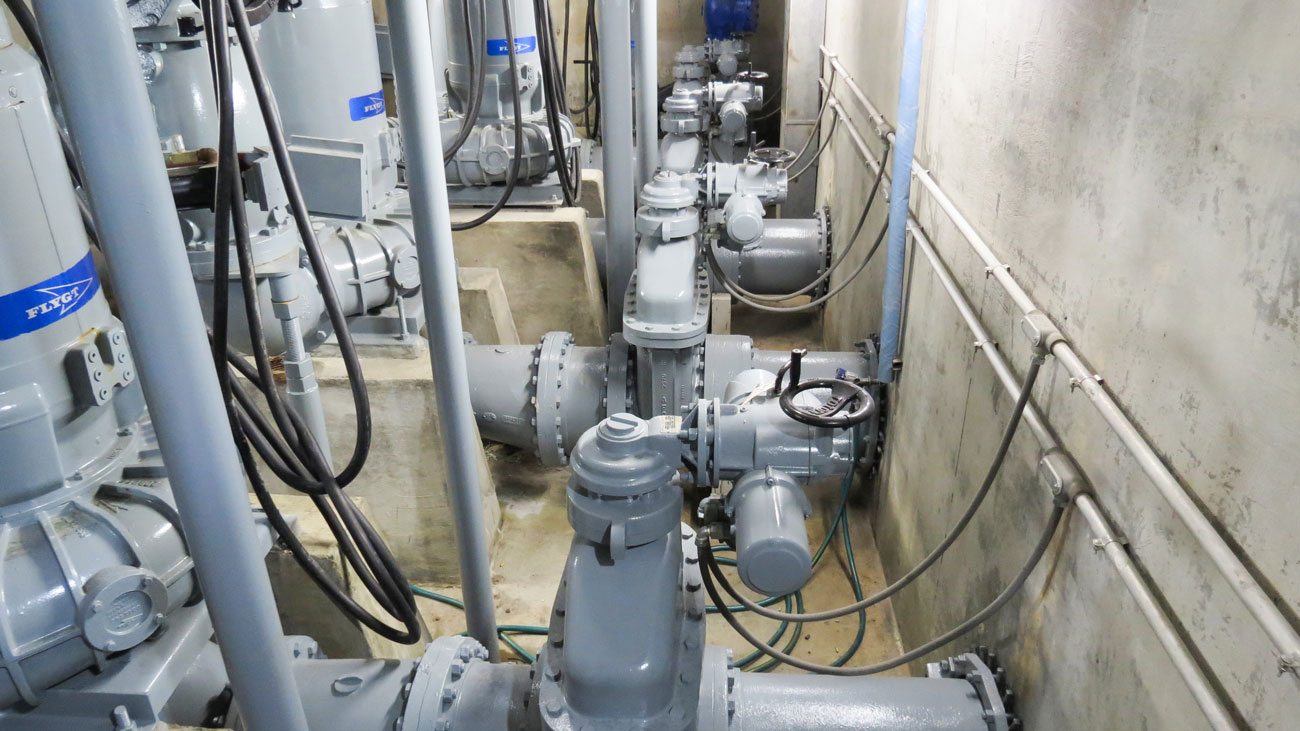
When the city of Columbia, Tennessee, was upgrading a pump station, it needed a reliable pump for a long-term, temporary sewer bypass project. The city chose a pump with an electric drive to improve pumping efficiency and reduce operating costs. By using this electric pump, the temporary bypass system ran for eight months without clogging and saved more than $120,000.
Addressing Emergency Sewer Bypass Need
Located 45 miles south of Nashville, Columbia, Tennessee, has a population of approximately 36,000 people. As part of its wastewater system, the city maintains 317 miles of gravity-enforced main sewer lines, 25 pump stations and a 14 million gallons per day (mgd) wastewater treatment plant.
In recent years, Columbia has engaged in sewer rehabilitation projects to help reduce or eliminate system overflows, including renovating and/or replacing several existing pump stations.
Among the pump stations slated to undergo scheduled upgrades in 2020 was the Santa Fe Pike pump station. Before those repairs could begin, the station experienced a major pump failure that same spring, which led to sewage overflows and spurred the city of Columbia to look for emergency pump rental. A diesel pump was quickly dispatched for an emergency sewer bypass system.
Pump Selection for the Temporary Bypass
Once the initial crisis was under control, the city of Columbia decided to move ahead with the $1.2 million planned upgrades for the Santa Fe Pike facility. City officials hired W&O Construction as the contractor on the project.
To maintain treatment operations while the upgrades were completed, W&O Construction needed to set up a temporary sewer bypass system. Because rehabbing the pump station would take several months to complete, the Columbia Wastewater Department made the decision to switch to electric-drive pumps from the diesel-powered equipment initially deployed to improve pumping efficiency and reduce operating costs. For temporary bypass projects that last longer than three months, electric bypass pumps are a cost-effective option, as they do not rely on fuel.
However, there was a snag in the process: the only electric option in the local fleet, one with a 450 horsepower (hp) motor, was too powerful for the site’s 400 amp service. The local station did not have the correct electrical setup for the 450 hp pump. The alternative pump was not made to pump solids, and the team knew clogging would be an issue.
Seeking to ensure the Columbia Wastewater Department had the right electric pump and equipment for its temporary bypass system, an OEM’s Nashville branch tapped the experience of its national base to identify the best solution within its rental fleet.
The identified solution was a pump with priming as a viable option due to its compact footprint, nonclog capabilities and performance range. A submersible pump was identified as the right model for the Santa Fe Pike pump station bypass. While this pump met the flow and head characteristics, it was too large to fit down the sewer manhole. To address this challenge, the team used a horizontal dry pump installation.
The pump was delivered to a dewatering fabrication center in Carterville, Illinois, where a crew built custom stands for both the pump and priming system within one working day. By the end of the weekend, the custom-engineered pump and priming system were delivered to the temporary bypass site in Columbia where the rental solution operated continuously for the duration of the bypass. The technology was taken off the priming system and married to the pump performance.
With the electric pump serving as the primary pump and the diesel pump still on-site as the backup pump, the temporary bypass system has been running continuously with no issues and no clogging. In addition, the use of an electric bypass pump has improved pump efficiency and reduced costs, resulting in savings of nearly $124,000 to date.

